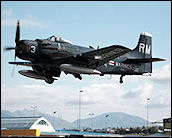 Law students always chuckle at forfeiture cases because they have the best names, such as United States v. 3,462 Cans of Tuna Fish or the like. It always seemed so unfair to those cans of tuna to have the entire juridical apparatus and force of the United States arrayed against them. Poor cans!
Law students always chuckle at forfeiture cases because they have the best names, such as United States v. 3,462 Cans of Tuna Fish or the like. It always seemed so unfair to those cans of tuna to have the entire juridical apparatus and force of the United States arrayed against them. Poor cans!
So I’m hoping that readers will be equally amused by an export law forfeiture case that is titled United States v. Twenty Miljam 350 IED Jammers and that was recently decided by the Second Circuit Court of Appeals. The twenty jammers at issue were manufactured by an Israeli company called Wireless Avionics. They were seized by Immigration and Customs Enforcement during a criminal proceeding against the CEO of the company for attempting to export these items without a license from the Directorate of Defense Trade Controls. They had been manufactured for sale to NATO, but DDTC had denied an export license claiming that the devices would interfere with radios used by U.S. forces in Afghanistan. The CEO then tried to disassemble them and export them from the U.S. for reassembly and sale elsewhere, which led to the seizure of the jammers, his arrest and a criminal indictment.
Now comes the odd part. For reasons not clearly explained by the Second Circuit opinion, the U.S. dropped all criminal charges provided that the CEO agreed to waive any future claims against the U.S. and the ICE agents for false arrest and to waive any objection to the forfeiture of the devices. The CEO, however, contested the forfeiture claiming that he was forced to sign the release under duress, the duress apparently being the threat of criminal prosecution. He also argued that the items were not on the United States Munitions List and did not require an export license. The Second Circuit dismissed the duress claim in large part based on a letter that the CEO sent after signing the waiver in which he said he had signed it voluntarily. And although the court notes that items on the USML require a license, it does not discuss whether these items were on the USML or not.
The Wireless Avionics website asserts that these devices are covered by “ECCN class 5.A.1.h,” presumably a reference to ECCN 5A001.h. That ECCN has a somewhat cryptic note that says “See also . . . Category XI of the International Traffic in Arms Regulations.” It would seem that whether an IED jammer fits under ECCN 5A001.h or Category XI of the ITAR would depend on whether it was specifically designed, modified or configured for military application.
Here the fact that the products were destined for NATO and were called — of all things — by the model name “Miljam” both suggest the items might well be Category XI. But then it’s hard to understand why the government folded like cheap lawn chairs and tried to get a promise that no one would get sued for false arrest. It also doesn’t help the Wireless Avionics case here that it applied for a license from DDTC which was denied. On the other hand, there is nothing to indicate that these jammers had been ruggedized, shielded or otherwise specifically adapted for military vehicles.
Because all we can do is speculate about the Government’s action here, speculation is welcomed in the comments section.

 Posted by
Posted by  Category:
Category: 

 Apparently it is not a job requirement at Immigration and Customs Enforcement to have to understand the laws that you are charged with enforcing, as
Apparently it is not a job requirement at Immigration and Customs Enforcement to have to understand the laws that you are charged with enforcing, as  Federal Express has
Federal Express has  Another problem with the arms brokering regulations proposed by the Directorate of Defense Trade Controls (“DDTC”) is their jurisdictional scope, which is impossibly vague and far exceeds the scope of permissible regulation under the Brokering Amendment which was passed by Congress and which permitted DDTC regulation of arms brokers in the first place.
Another problem with the arms brokering regulations proposed by the Directorate of Defense Trade Controls (“DDTC”) is their jurisdictional scope, which is impossibly vague and far exceeds the scope of permissible regulation under the Brokering Amendment which was passed by Congress and which permitted DDTC regulation of arms brokers in the first place.

